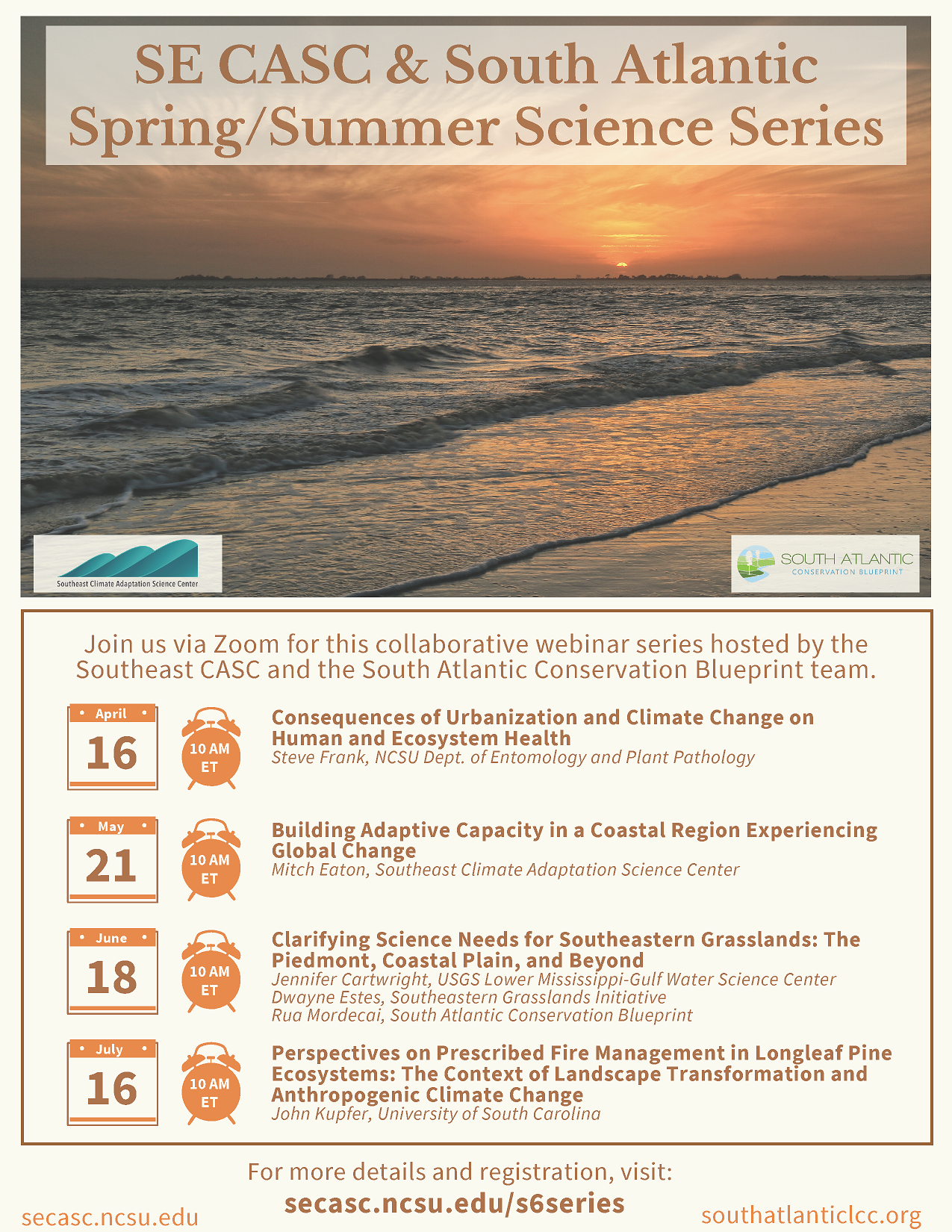Second Summer Science Series webinar - Building adaptive capacity in a coastal region experiencing global change

Last month, I mentioned the SE CASC & South Atlantic Spring/Summer Science Series of webinars. The Southeast Climate Adaptation Science Center and the South Atlantic Blueprint team are hosting them on the third Thursday of each month at 10 am Eastern, through July.
The second webinar is coming up on May 21st at 10 am Eastern! It will feature Southeast CASC researcher Mitch Eaton as he presents on “Building adaptive capacity in a coastal region experiencing global change.” Registration is open: https://ncsu.zoom.us/meeting/register/upcvdu-srjktq7-F83AlNgTZYKKPnDFhPA
Here’s a preview of what his webinar will cover:
Coastal ecosystems in the eastern U.S. have been severely altered by local processes resulting from human development and by global-scale ecological changes associated with climate change. These forces are degrading the capacity of ecological and social systems to respond to disturbance. The goal of this project was to foster active engagement with stakeholders and encourage building of effective networks and trust across organizations and individuals in South Carolina’s Lowcountry. We established the Cape Romain Partnership for Coastal Conservation, which included individuals from federal and state resource agencies, local conservation NGOs, and organizations representing underserved community interests. The Partnership members originated our research topics, which focused on quantifying key drivers of change – localized sea-level rise (SLR) predictions, estimates of hurricane inundation as amplified by SLR, urban growth trends and forecasts, and impacts on management. We also worked to inform coastal planning by modeling relationships between land-use change and flooding, ecosystem services, and forest management, incorporating the impacts of uncertainty and risk on long-term investments in land protection. Our focus was on the early phase of social engagement, by bringing together various conservation interests and using a variety of tools for co-production of knowledge and meaning, and by considering how the lessons learned could be helpful for engaging more diverse social interests. These interactions with Lowcountry planners and residents revealed a complex relationship between society and the environment, with sense of place, cultural heritage, and quality of life being important considerations for adaptation planning.
The series website has more information on the June and July webinars, as well. We hope you’ll tune in!